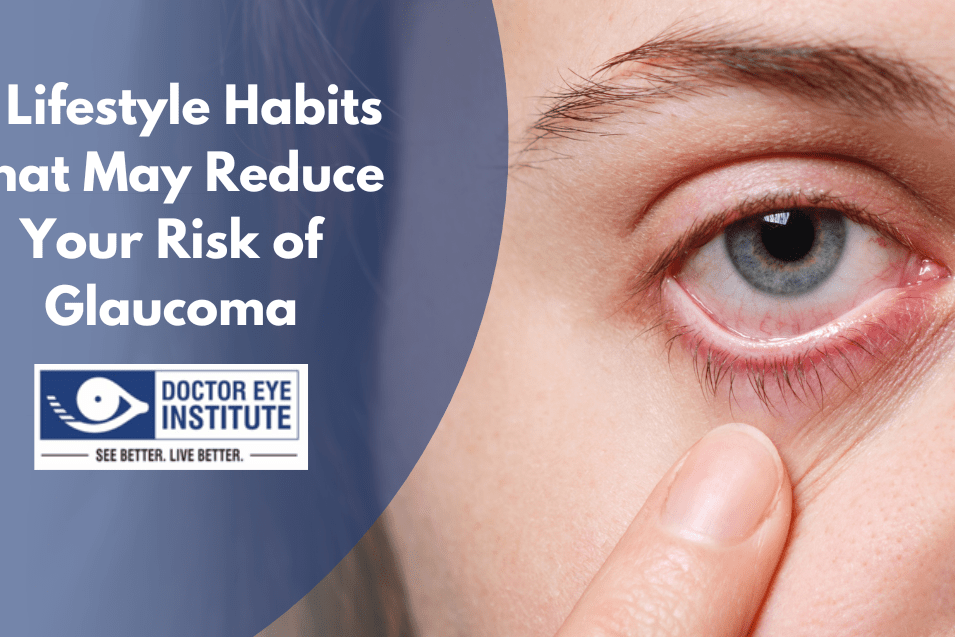Lifestyle habits that reduce glaucoma risk
Glaucoma is a serious eye condition that can lead to vision loss or blindness if left untreated. While certain risk factors for glaucoma, like family history and age, can’t be controlled, there are lifestyle habits you can adopt to potentially reduce your risk. In this article, we’ll explore seven lifestyle habits that may help in lowering your risk of developing glaucoma.
Regular Exercise:
Exercise is not only beneficial for your overall health but also for your eye health. Engaging in regular physical activity helps to improve blood flow throughout your body, including the eyes. Studies suggest that increased blood flow to the optic nerve can help reduce the risk of developing glaucoma. Activities like brisk walking, jogging, or even yoga can be excellent choices for maintaining eye health. However, remember to consult with your healthcare provider before starting any new exercise routine.
Healthy Diet Choices:
Your diet plays a significant role in your overall health, including the health of your eyes. A diet rich in antioxidants, vitamins, and minerals can help protect your eyes from oxidative damage. Incorporate foods like leafy greens, colorful fruits and vegetables, and foods high in omega-3 fatty acids (e.g., salmon and walnuts) into your diet. These nutrients have been linked to a lower risk of glaucoma and may help maintain eye health.
Managing Stress:
Chronic stress can have adverse effects on various aspects of your health, including your eyes. Elevated stress levels may increase intraocular pressure (IOP), a key risk factor for glaucoma. Practicing stress management techniques such as mindfulness, meditation, deep breathing exercises, or engaging in hobbies can help reduce stress and potentially lower the risk of glaucoma.
Getting Quality Sleep:
Quality sleep is essential for the overall well-being of your body, including your eyes. Poor sleep patterns have been linked to an increased risk of eye conditions like glaucoma. Aim for seven to eight hours of restful sleep each night, as this will help reduce eye strain and maintain optimal eye health.
Avoiding Smoking and Alcohol:
Smoking and excessive alcohol consumption are known risk factors for glaucoma. Smoking can increase oxidative stress in the eyes, while heavy alcohol consumption may lead to increased IOP. Quitting smoking and moderating your alcohol intake can significantly reduce your risk of developing glaucoma.
Eye Exams:
Regular eye exams are crucial for maintaining good eye health and detecting glaucoma in its early stages. Glaucoma often progresses silently, with no noticeable symptoms until it’s too late. Eye exams can detect elevated IOP and other early signs of the condition. If you have a family history of glaucoma or are over the age of 40, it is especially important to have regular eye exams, even if you do not have any symptoms. In some cases, glaucoma surgery may be recommended to help preserve vision.
Managing Medical Conditions:
Conditions like diabetes and high blood pressure are linked to an increased risk of glaucoma. Managing these underlying health conditions through proper medical care and lifestyle changes can help lower your risk of glaucoma. Ensure you follow your healthcare provider’s recommendations and maintain a healthy lifestyle to keep these conditions under control.
In conclusion, while there is no surefire way to prevent glaucoma, adopting these seven lifestyle habits can significantly reduce your risk. By focusing on regular exercise, maintaining a healthy diet, managing stress, getting quality sleep, avoiding smoking and excessive alcohol consumption, scheduling regular eye exams, and managing medical conditions, you can take proactive steps to protect your eye health and potentially prevent or detect glaucoma in its early stages. Prioritizing your eye health is an investment in your future vision and overall well-being.
Schedule a glaucoma screening at Doctor Eye Institute today to help protect your vision for the future.









